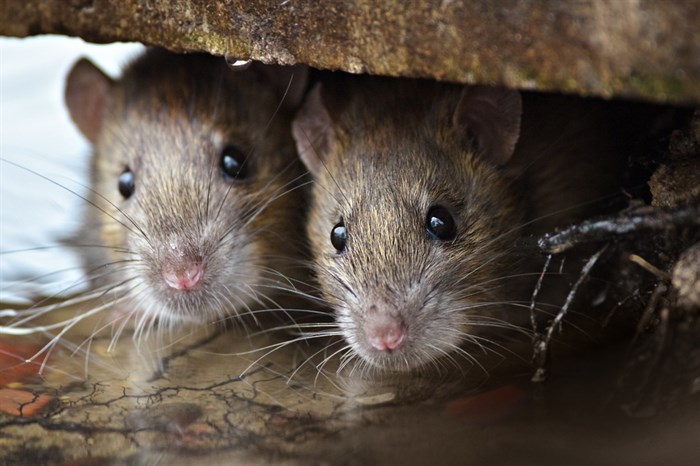
Image Credit: Shutterstock
November 02, 2015 - 8:00 PM
THOMPSON-OKANAGAN - As the topic of rats and how to deal with their rising numbers becomes a more common conversation in the Thompson-Okanagan, the SPCA is reminding the public even pests deserve to be treated humanely.
Sara Dubois, the chief scientific officer for the B.C. SPCA, says many rat extermination practices are inhumane and potentially harmful to other species as well.
“Poisons are something people jump to, and the problem we’re seeing more and more is poisons have secondary effects,” Dubois says.
Not only is poison a cruel end for an animal — Dubois says it can take three days for them hemorrhage out and die — predators like coyotes and raptors that eat contaminated rats may also die as a result.
“It (poison) builds up in their bodies and kills them. We’ve seen owls, coyotes, bobcats even cougars killed,” Dubois says. “Poison should be be a last resort once you’ve done everything else.”
Snap traps are another common method, and if they’re not used properly can result in a rat’s paw or tail getting caught, leading to pain and suffering instead of a swift death.
“Just because we’ve labelled this animal as inconvenient doesn’t mean it deserves to be treated inhumanely,” Dubois says.
When used properly snap traps are a far preferred method over poison — but even the most humane extermination methods are worthless if they aren’t being used in conjunction with preventative measures, Dubois says.
“It doesn’t matter how many you kill, if there’s food and shelter they will always come back,” Dubois says. “It solves nothing unless you figure out what the problem is.”
Addressing the root cause — whether it’s garbage, compost, or people feeding rats — should always be the first step in any pest management plan, Dubois says. Understanding why rats are here in the first place is an important question, but one that often gets overlooked in the knee-jerk reaction that proceeds a rat infestation, she says.
“We’re often responsible for influencing their population levels by leaving out food,” Dubois says. “If we’re more responsible with what we’re doing, that population may stabilize.”
Like other municipalities facing rat infestations, the City of Kelowna is exploring its options and at least one Okanagan pest control company is recommending a city-wide program be launched to eradicate the rats. It’s something Dubois insists shouldn’t be taken lightly.
“It’s hard to predict but (extermination) will definitely have an affect on other wildlife. If predators like coyotes don’t have rodents as a food source, what will they turn to next? That could be family pets,” she says. “Extermination can have consequences you’re not even thinking of.”
When only a small number of rodents are present, relocation is an option.
More information about nuisance wildlife control, including tips for prevention, can be found here.
To contact the reporter for this story, email Charlotte Helston at chelston@infonews.ca or call 250-309-5230. To contact the editor, email mjones@infonews.ca or call 250-718-2724.
News from © iNFOnews, 2015